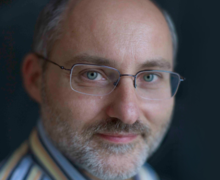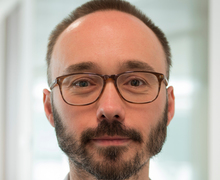Interview with Roberto Di Cosmo and Stefano Zacchiroli
Software Heritage. Preserving the Free Software Commons


Roberto Di Cosmo and Stefano Zacchiroli will give a talk about Software Heritage. Preserving the Free Software Commons at FOSDEM 2017.
Q: Could you two briefly introduce yourself?
-
Roberto: I’m a computer scientist, full professor at University Paris Diderot, a hacker, a writer, and a citizen who believes we can build together a better world through science, technology, philosophy and community. Some of my past achievements are DemoLinux (one of the first live distributions), Mancoosi (a project dedicated to improving package management for FOSS distributions), Irill (a research space focused on Free Software) and the Free Software thematic group in the Paris region (that helps fund research and development projects in Free Software).
-
Stefano: On the research side, I’m an associate professor of Computer Science at University Paris Diderot currently on leave at Inria to work on Software Heritage; I’ve done research work on formal methods, Free/Open Source Software engineering, and now software preservation. On the Free Software activism side, I’ve been a Debian Developer since 2001, where I was elected to serve as Debian Project Leader for 3 terms in a row over the period 2010-2013. I’m a Board Director of the Open Source Initiative (OSI), a member of FSF’s High Priority Projects Committee, and a recipient of the 2015 O’Reilly Open Source Award.
Q: What will your talk be about, exactly? Why this topic?
Our society has grown to depend on software for every aspect of our life, and an increasing part of this software is Free/Open Source Software, and constitutes our software commons. We survey the state of this precious part of our knowledge, and provide concrete evidence of why it has now become necessary to take action in order to ensure its preservation and broad accessibility. Software Heritage has as its mission to address this challenge, by collecting, preserving, and sharing all publicly available software in source code form, with all its development history.
In our FOSDEM 2017 talk we will detail the basic philosophical and organisational principles of Software Heritage, and present its technical architecture as well as the challenges that underlie the construction of the largest source code archive ever built.
Q: What do you hope to accomplish by giving this talk? What do you expect?
Software Heritage is an open initiative engineered for the long term, with societal, technical, scientific and industrial implications. It comes with many organisational and technical challenges, and it is instrumental for its success that developers and users of software get rapidly involved. We hope with this talk to raise awareness of the challenges we are facing, and attract contributors to this exciting mission.
Q: What’s the history of the Software Heritage project? Why was it started? How did it evolve? Is this what you planned it to be?
The first informal discussions on what has now become Software Heritage started back in the spring of 2014, (as often happens, around a coffee machine and a tea pot) at IRILL in Paris. After having explored the state of the art, charted related initiatives, and elaborated the vision we now proudly share, we got the needed initial support from Inria around mid-2015. During the summer of 2015, our initial infrastructure was set up, and the operations for collecting the source code repositories started. We are especially happy to have arrived just in time to collect the contents of Gitorious and Google Code before it was too late, thanks to some wonderful people (at the Archive Team and Google, respectively) that were eager to help.
Q: What challenges did you encounter while building the Software Heritage archive?
On a project of this breadth and scope, you are bound to face a variety of challenges, and we did indeed face both organisational and technical challenges, that you will of course hear about in our talk. Our biggest challenge today is to raise awareness and pave the way to make it simple for contributors to come and lend a hand.
Q: How can interested people contribute to the Software Heritage project? In which domains could you use some help?
There are many areas where people can contribute. Software Heritage is an amazing playground for developers: one can help automating the collection of source code from any of the great number of repositories spread around all the planet, or write an importer to handle any of the broad variety of version control systems. And that’s just the tip of the iceberg: we need efficient storage structures, fast search algorithms, etc. And even if you do not have time to contribute to the technical infrastructure, your help in raising awareness will be precious too.
Q: Have you enjoyed previous FOSDEM editions?
Among the two of us we have attended every FOSDEM edition except the first one (that was run under a different name, so arguably we haven’t missed any FOSDEM :-P). So, you bet, we have very much enjoyed previous FOSDEM editions and we are big fans of the event. In our experience with FOSS-related conferences around the world, FOSDEM is /the/ FOSS community conference, nothing else matches its ability to unite together such a wide and diverse community of communities of FOSS hackers. Keep it up!

Creative Commons License
This interview is licensed under a Creative Commons Attribution 2.0 Belgium License.